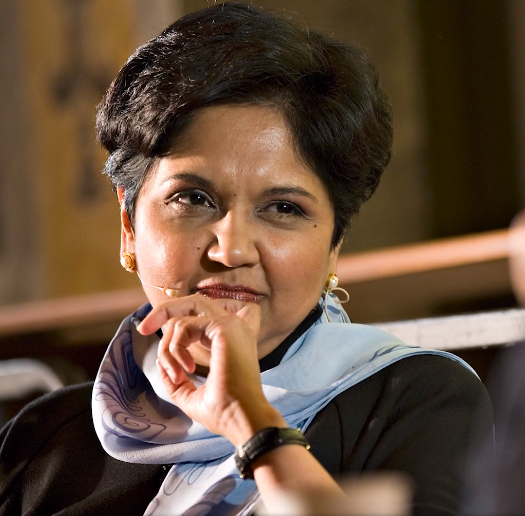
As the world becomes more interconnected, businesses are expanding their operations across borders, leading to a rise in international teams. With this shift, leaders need to have strong communication skills to effectively manage their teams and drive results.
In this blog post, we will explore the importance of communication skills for leaders of international teams and how multilingualism plays a crucial role in the hybrid workplace.
The significance of communication skills for leaders of international teams
Effective communication is a critical skill for leaders, regardless of the size and scope of their team. When leading international teams, communication becomes even more crucial. Different cultures and languages can create a communication gap, leading to misunderstandings and conflicts. As such, leaders must develop strong communication skills to overcome these barriers and ensure that their team functions efficiently and effectively. Or, as Harvard Business Review put it, “In the age of knowledge, ideas are the foundation of success in almost every field. You can have the greatest idea in the world, but if you can’t persuade anyone else to follow your vision, your influence and impact will be greatly diminished.”
One of the biggest challenges that leaders of international teams face is building trust with team members who have different backgrounds and experiences. Strong communication skills can help bridge this gap, allowing leaders to connect with their team members and build a sense of trust and understanding. When team members feel understood and valued, they are more likely to be productive, engaged, and committed to achieving their goals.
Communication skills for leaders of international teams are not just limited to verbal communication. Leaders must also be proficient in written communication, including email, messaging, and other forms of digital communication. In today’s digital age, it is critical for leaders to be able to communicate effectively across different channels and platforms! This often means to keep the communication short and effective, or like economist Daniel Kahneman would say, avoid complex and lengthy language where simple language will do.
As the work world continues to evolve, so do communication skills. The rise of remote and hybrid work has increased the need for leaders to communicate effectively through technology. This means that leaders must be adept at using digital tools and platforms to communicate with their team members. Moreover, leaders need to be aware of the cultural differences that may impact how digital communication is perceived and interpreted by team members from different countries and backgrounds.

Read more on corporate digital language training in our latest whitepaper and how you can help leaders find the right words at the right moment in time.
Multilingualism as the ultimate communication skill for leaders
In a global business environment, multilingualism is becoming an essential skill for leaders of international teams. Being able to speak more than one language allows leaders to communicate with team members who may not speak their native language. It also demonstrates a willingness to learn and understand other cultures, which can help build trust and rapport with team members.
Speaking multiple languages is an asset in leadership, as it improves multitasking, prioritizing, and relationship-building skills. Bilingual leaders also carry inherent cultural knowledge that positively influences community-building and networking, giving them a better understanding of the nuances of different languages and cultures. This knowledge allows them to communicate more effectively and adapt their communication style to the needs of their team members. In addition, multilingual leaders are better equipped to navigate cultural differences, leading to more successful and harmonious working relationships.
Multilingualism is also becoming increasingly important in the hybrid workplace. With more teams working remotely, leaders need to be able to communicate effectively with team members who are located in different parts of the world. Being multilingual can help leaders to overcome language barriers and ensure that all team members feel included and valued.
(...)There is a rising need for people skilled in understanding context that stems from how people speak or interact. This goes beyond issues of inclusiveness and having a culturally diverse workforce. It is much more an issue of leadership in being about to comprehend and hold different perspectives readily and why people may think in different ways.
The importance of soft skills in the hybrid workplace
Soft skills are becoming increasingly important in the hybrid workplace. As teams become more diverse and distributed, leaders need to be able to communicate effectively, build trust, and collaborate with team members from different cultures and backgrounds. Soft skills, including communication, emotional intelligence, and adaptability, are critical to building successful and high-performing teams.
1. Effective communication is a key soft skill that leaders need to master to lead international teams. Leaders must be able to communicate their vision and goals clearly, listen actively to their team members, and provide feedback that is constructive and meaningful. They also need to be able to adapt their communication style to the needs of their team members, considering cultural differences and communication preferences. Choosing the right digital platforms in a hybrid work environment is crucial to communication. Leaders need to stay on top of the latest tools and support their integration into the team. This might be difficult sometimes, but it matters to avoid isolation and support internal growth.
2. Emotional intelligence is another critical soft skill for leaders. Emotional intelligence involves being aware of one’s own emotions and those of others, managing emotions effectively, and building strong relationships. Leaders with high emotional intelligence can better understand and empathize with their team members, leading to more productive and harmonious working relationships.
3. Adaptability is also a critical soft skill for leaders in the hybrid workplace. As the work world continues to evolve and change, leaders must be able to adapt to new situations, technologies, and ways of working. Being adaptable means being open to change and being able to pivot quickly to new circumstances. Leaders who are adaptable can guide their teams through uncertain times and help them to succeed in a constantly evolving work environment.

Read more on digital business coaching in our latest whitepaper and how coaching can help leaders find the right leadership style.
The role of HR and L&D managers in developing communication skills for leaders HR and L&D managers play a crucial role in developing communication skills for leaders of international teams.They are responsible for identifying training needs, developing training programs, and ensuring that leaders have the necessary skills to succeed in their roles. To develop communication skills for leaders, HR and L&D managers can provide training in cross-cultural communication, active listening, and effective feedback. They can also provide language training for leaders who need to communicate in languages other than their native language. Moreover, HR and L&D managers can provide training in digital communication skills. As more teams work remotely and digitally, leaders need to be proficient in using digital communication tools and platforms. HR and L&D managers can provide training in virtual collaboration, online meeting etiquette, and other skills that are essential for effective digital communication. Finally, HR and L&D managers can support leaders in developing their emotional intelligence and adaptability. Through training and coaching, they can help leaders to become more aware of their emotions, manage them more effectively, and build stronger relationships with their team members. HR and L&D managers can also help leaders to develop the skills they need to be adaptable and agile in a constantly changing work environment.
Communication skills are crucial for leaders of international teams, and the ability to communicate effectively in different languages is becoming increasingly important in the hybrid workplace. Soft skills, including communication, emotional intelligence, and adaptability, are also essential for leaders to build high-performing and productive teams. HR and L&D managers play a critical role in developing communication skills for leaders of international teams. By providing training and support in cross-cultural communication, digital communication, emotional intelligence, and adaptability, they can help leaders to succeed in their roles and drive results for their organizations. As the work world continues to evolve, the need for effective communication skills and soft skills will only become more important, and HR and L&D managers will be at the forefront of developing the leaders of the future.
In addition to the points discussed above, it’s important to note that effective communication skills are not just limited to leaders of international teams. In fact, all employees can benefit from developing their communication skills, regardless of whether they work in a global or local team. Effective communication skills are essential for building strong relationships, managing conflicts, and achieving shared goals.
Moreover, communication skills are not static; they are constantly evolving in response to changes in technology, work practices, and cultural norms. As such, it’s essential for leaders and employees alike to stay up-to-date with the latest trends and best practices in communication. One way to do this is by participating in ongoing training and development opportunities, such as digital business coaching sessions, online courses, or workshops. By continuing to develop their communication skills, leaders can ensure that they are equipped to meet the challenges of the rapidly changing work environment.
Finally, it’s worth noting that communication skills are not just about what we say, but also how we say it. Non-verbal communication, such as body language and tone of voice, can be just as important as verbal communication. As such, it’s important for leaders and employees to be aware of their non-verbal cues and to develop the skills needed to communicate effectively through both verbal and non-verbal channels.




